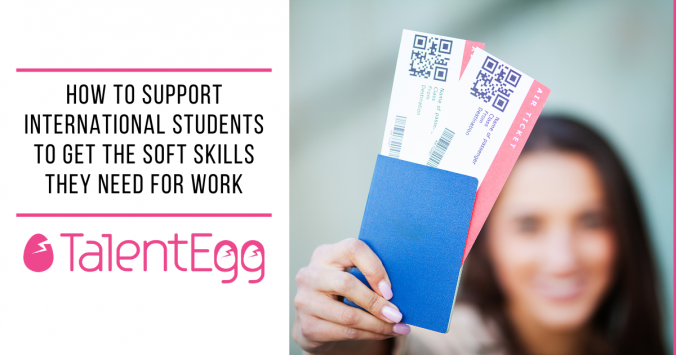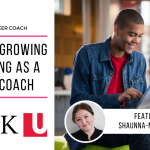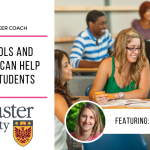One of the top struggles career educators tell us is international students need enhanced support to enter the Canadian workforce successfully. The issue is exacerbated by two other issues we hear from career educators; although students need soft skills training, there isn’t enough time to fit it into the curriculum and it’s critical for your educational organization to produce successful graduates. So how can we take that added factor of international students needing enhanced support and turn it into a success story for you and them?
Enter our e-Learning Soft Skills Training courses! We’re working with certified adult educators, clinical psychologists and other subject matter experts to tailor our lessons to help fill that soft skills gap through specialized programs for students and recent grads.
As the world becomes more interconnected and globalized, more and more students are choosing to study abroad. International students bring a wealth of knowledge and experience to their studies, but they may also face challenges in developing the soft skills they need for the workforce. Here are a few ways that educators and schools can support international students through our backpack-to-briefcase course:
Relationships At The Core
- Provide opportunities for workplace relationship success. One of the key benefits of studying abroad is the opportunity to learn from and interact with people from different cultures. Schools and educators can support international students by providing opportunities for future workplace relationship success. Relationships are a key driver of workplace success. It is pivotal that students build and nurture effective relationships with their colleagues, managers, customers, leaders, and stakeholders throughout their careers.
Verbal & Nonverbal Communication
- Help students develop their English language skills. For many international students, speaking, reading, and writing in English is essential for success in their studies and future careers. But learning other valuable communication techniques, such as the importance of body language, ways to structure your conversations at work so that they are meaningful, impactful and just as valuable.
Inclusive Outlook
- Guide your students on the understanding of unconscious bias and that it is often rooted in or created by specific cultural, gender, or socioeconomic stereotypes that they may or may not be aware of. Through our course, we’ll help your students to develop their self-awareness of what may be their unconscious biases and learn inclusive communication techniques to broaden their communication horizons and help them make decisions through a wider spectrum of decision-making.
We’ve built our custom eLearning programs to support the school-to-work transition and early career development of Canada’s top young talent. TalentEgg’s virtual courses are designed to help all of your students, international and locally to close the gap between soft skills and the Future of Work by offering virtual e-Learning Soft Skills Training courses and certificates. Career Educators can take the first step in preparing students for their future careers by tackling the need for soft skill development by contacting TalentEgg at elearning@talentegg.ca.





